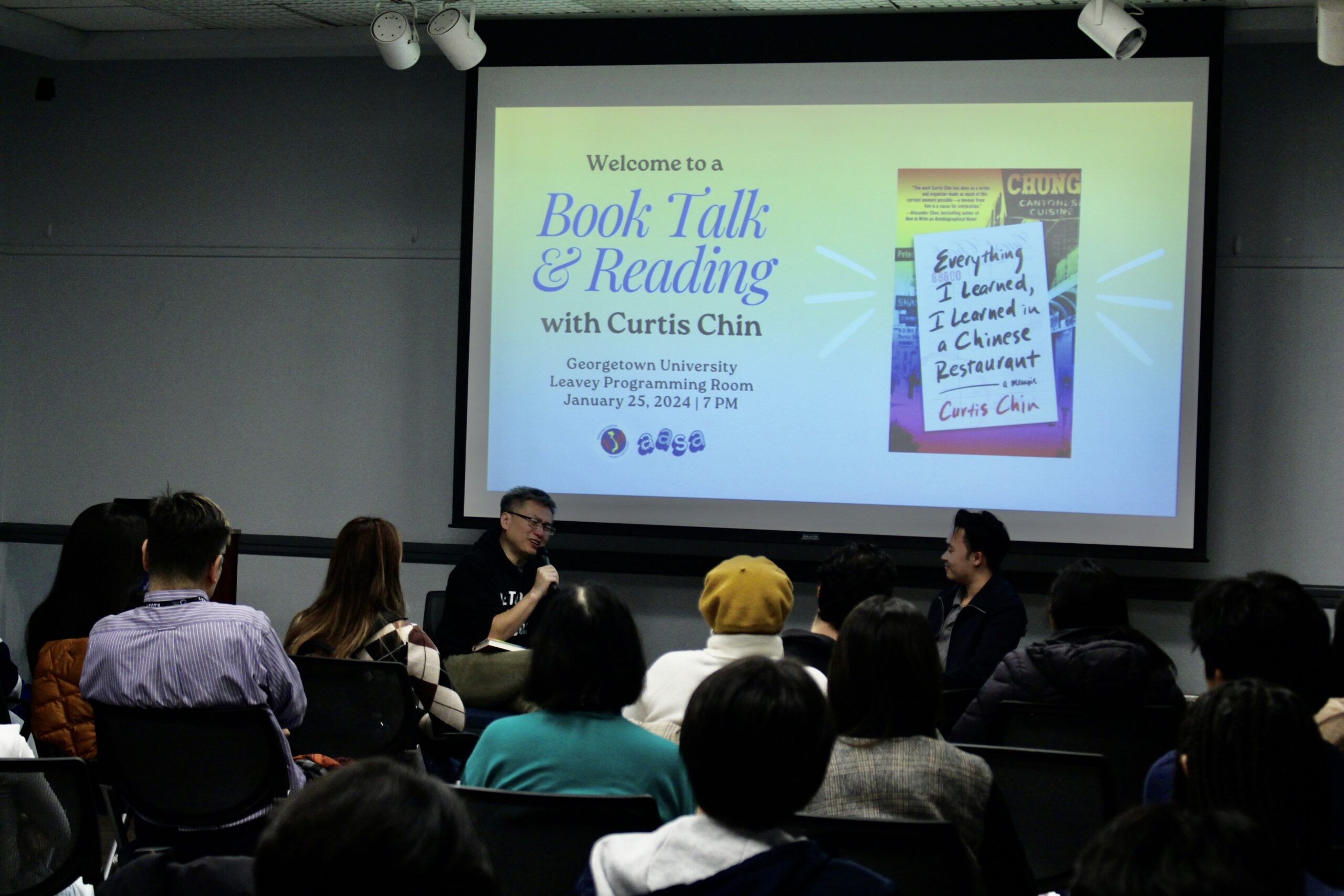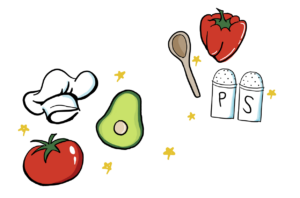When author Curtis Chin says that his family’s restaurant is the Chinese restaurant, he comes prepared with the numbers to defend his claim — including an egg roll tally of at least 10 million, 60 years of business ownership, and a new memoir that includes 24 stories of a childhood shaped by its four walls.
Chin visited campus on Thursday, Jan. 25 for a book talk co-hosted by the Vietnamese Student Association and the Asian American Student Association (AASA). Chin’s memoir, “Everything I Learned, I Learned in a Chinese Restaurant,” was published in October 2023 and includes stories of growing up at Chung’s Cantonese Cuisine, his family’s restaurant, during the 1980s.
The event description describes Chin’s memoir as “both a memoir and an invitation: to step inside one boy’s childhood oasis, scoot into a vinyl booth, and grow up with him.” The book starts with a prologue of Chin’s rich family history, starting in late 1800s Michigan.
His family settled in Detroit but struggled to find work in the auto industry due to discrimination. They saved money to open a grocery store and, in 1940, the family restaurant. Born around the time of the Detroit Riots, Chin jokingly referred to himself as a “riot baby.”
Chin comes from a background of storytelling; he is an award-winning writer and filmmaker. He began writing the stories that would later become his memoir for his nieces and nephews, worried that the next generation wouldn’t know the family history.
“I don’t think you can know a person’s story unless you know their family’s story. Because it really does impact where you are and how you come to be,” Chin said during the book talk.
After deciding to publish his work, Chin struggled to find an agent; many told him that his writing wouldn’t sell. It was after changing the novel to focus more on themes of racial and LGBTQ+ identity that the book became sought after.
“It started off this family story, but then afterwards, I thought, maybe this book can contribute to the conversation that we’re having here in America on a larger scale,” Chin said.
Still, family plays a central role in the book. At the event, Chin spoke at length about his mother, who is the source of much of his family history and who convinced him to apply to the University of Michigan despite his reluctance. He went on to study Creative Writing, working during the day and taking classes at night.
“I rationalized, would it be so bad to give up four years of my life for a woman who’s given up her whole life for me?” Chin said. While his family has been supportive throughout the publication process, they have yet to read the book.
“According to my sister, she has no interest in learning about my sexual awakening,” Chin said to laughs in the audience.
Chin, who wore a sweatshirt reading “DETROIT VS EVERYBODY” during the event, holds much love for his family’s hometown. But he also described the difficulties of growing up amidst the anti-Asian sentiment of the ‘80s, as well as struggling to come out during the height of the AIDs crisis.
Attendees were curious about how this particular climate impacted Chin’s childhood, and Chin detailed how the murder of Vincent Chin affected him.
Chin’s family personally knew Vincent Chin, a Chinese-American man who was beaten to death by two white men in a racially motivated attack in 1982. He recalled his anger at the lack of media coverage, and credited it with his transition from “being a waiter to a writer.”
“I lugged the typewriter from the back kitchen to the dining room, and I would write these letters to the editor, trying to say, ‘Hey, you need to cover this story,’ but I’m 14 years old, and none of them covered it,” Chin said.
The family restaurant was a backdrop for not only his writing but his education as a whole. When asked about the title of his book, he said its meaning is largely literal. His parents often encouraged him to learn from the patrons at Chung’s.
“When you’re a kid, a lot of times your parents will say, ‘Don’t talk to strangers,’ right?” Chin said. “My parents actually gave me the exact opposite advice. They said, ‘Talk to strangers,’ and who they were talking about were the people sitting in our dining room.”
Lincoln Le (COL ‘24), the moderator of the event, is also a chef; his pop-up restaurant “The Lincoln Experience” is set to continue through the end of the semester. He said he was struck by the vulnerability represented in Chin’s book.
“Among the Asian American community, there’s not really much conversation about vulnerability and familial trauma and generational trauma, but Curtis made it so easy to read,” Le said.
Chin said that it was his mother who often shared personal family stories with him and his siblings. “I think it’s just because my mom had such a hard life. She just never thought she was seen or heard,” Chin said.
“I knew it meant that we wanted to be something for my mom. We wanted to make her proud.”
As the event was wrapping up, an attendee posed a question to Chin about the potential future for his work.
“Is there any interest in this becoming a film or a limited series? And if so, are you trying to do the screenplay?” they said.
Chin said he was interested in a potential screen adaptation, but was unsure of the prospects for a book sequel that could include additional stories. He does, however, have a potential title — “The Leftovers.”





